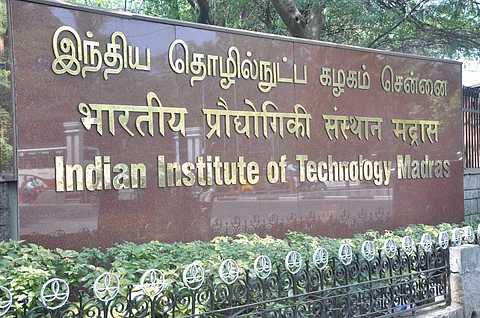

Indian Institute of Technology (IIT) Madras is developing an innovative model to tackle electronic waste (e-waste) by linking stakeholders in the formal and informal economy. Called e-Source, it will be an exchange platform that will serve as an online marketplace for Waste Electrical and Electronic Equipment (WEEE) and facilitate a formal supply chain between various stakeholders (buyers and sellers).
This initiative is being spearheaded by Indo-German Centre for Sustainability (IGCS). The IGCS team believes that the problem of e-waste could be resolved by connecting different buyers and sellers of used and waste electronic equipment and components without compromising their interests. The e-Source initiative aims to make WEEE as a key resource in the evolution of a circular economy by establishing traceability and recovery of post-consumer e-waste in the market.
According to studies, the world annually generates 53.6 million tonnes of e-waste currently, which is expected to double in the next 16 years. Studies also estimated that 85 per cent of this is being lost globally. IIT Madras researchers, focused on a ‘circular economy,’ are working to address the gaps in the e-waste sector, which can potentially open doors to a $50 billion economy.
E-waste is one of the pressing issues in India as well, with the country being the world's third largest producer. Further, between 2019 and 2020, Indians generated 38 per cent more e-waste. However, what is more worrying is that only five per cent of e-waste is recycled responsibly in the country.
Highlighting the need for the e-Source initiative, Prof Sudhir Chella Rajan, Faculty Member, Indo-German Centre for Sustainability (IGCS), IIT Madras, said, “A novel open-source solution is needed that is data enriched, leveraging the potential of transparency in formalised e-waste handling and management. E-wastes are typically either completely stripped down for precious metals and other high-value materials or dumped in landfills, without exploring potential re-use and repurposing options. Unscientific recycling methods are harmful for waste handlers and the environment.”
Elaborating on the project, Rajan also a faculty in the Department of Humanities and Social Sciences, IIT Madras, said, “e-Source is a unique open-source platform that will evolve towards using machine learning for better traceability of e-waste in compliance with guidelines and help increase the opportunities for repair and re-use of e-waste. This will potentially improve livelihoods for youth and women in periurban settings by upgrading their skills and improving occupational health and safety, reduce the flow of toxic materials in waste streams and broaden the market for affordable, second-hand e-devices.”
The team has already completed initial market research and mapping of the various stakeholders in this e-waste ecosystem through direct on-the-ground/telephonic conversations and consultations combined with secondary research. The beta version of the online platform is ready and the team is now looking at more collaborators from the ecosystem, especially informal e-waste aggregators, to kick-start the pilot run. The IGCS team has also begun talks with a few partners.
A unique aspect of the e-Source initiative is that the team would be deploying a detection system that uses a combination of image processing and natural language processing techniques to extract product information and upload it to the database.
Once significant data sets are available, the team would advance towards deploying machine learning capabilities to ensure easy retrieval and proper indexing of the products to meticulously reflect the users' perspective and the relevant aspects of the processes. Such accuracy is crucial for promoting successful online trading.
This initiative requires forging collaborations and influencing the stakeholders in the informal markets who are primary users/buyers of used electronic goods and sellers of electronic spares, ICT components and electronic equipment. This would ensure enough volumes are generated for repair, reuse and recycling for larger players to operate along with aiding standalone repairmen to acquire electronic components (ECs) independent of the centralised grey markets.
